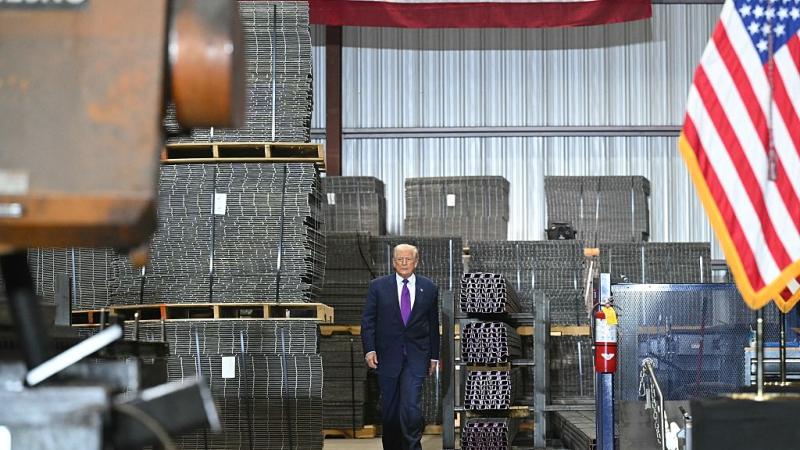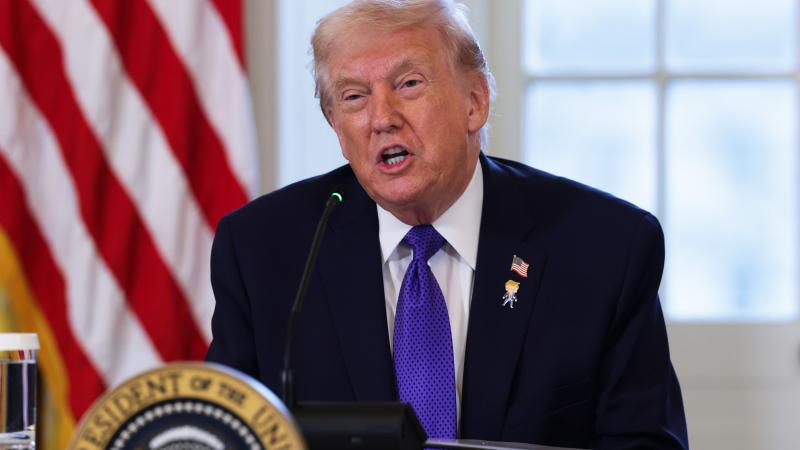Trump turns to surrogates to push policy on the ground in key states
Said events will take the form of town halls and cover issues such as “the economy, the border crisis, and ending the threat of World War III.”
As the presidential race enters its final weeks, the campaign for Donald Trump is turning to key allies to help press the former president’s case in pivotal battleground states, staging policy-centered events in which top Republicans outline a second Trump administration in detail.
While Trump remains committed to his usual rallies, the next of which will take place on Saturday in Mosinee, Wis., this week’s set of policy events follow the trend of Trump increasingly deploying off-ticket Republicans to expand the campaign’s presence and counter Democratic efforts.
Amid the Democratic National Convention, the Trump team orchestrated a week of counterprogramming that similarly employed high-profile Republicans.
During that week, the campaign staged daily press conferences at Trump Tower in Chicago in which figures such as tech mogul and former 2024 GOP presidential candidate Vivek Ramaswamy, former U.S. Ambassador to the Organization of American States Carlos Trujillo, Florida Sen. Rick Scott, Wisconsin Sen. Ron Johnson, and Florida Reps. Michael Waltz and Byron Donalds, all Republicans, excoriated the Biden administration on policy.
The campaign indicated in a Tuesday press release that it intends to move forward with the use of surrogates to expand its presence in swing states, announcing “the most extensive surrogate operation in the history of presidential politics.”
“President Trump is supported by an impressive array of exceptionally talented individuals who bring different expertise and backgrounds to the table,” Trump Campaign National Press Secretary Karoline Leavitt said. “We look forward to deploying these surrogates across the country to meet with voters and relay President Trump's vision to Make America Strong, Safe, and Prosperous Again.”
Said events will take the form of town halls and cover issues such as “the economy, the border crisis, and ending the threat of World War III.”
This week, the campaign will hold at least three Trump-less events as part of the Agenda 47 policy tour. Agenda 47 is the Trump campaign’s official policy agenda, though the Trump team has previously given relatively little attention to the official branding of its platform. At one point, Agenda 47 largely consisted of a series of policy videos that Trump himself posted to his Truth Social.
But the increased prominence of the platform comes amid campaign frustrations over Project 2025, the Heritage Foundation’s own presidential transition project that is not directly affiliated with the Trump campaign. Democrats and legacy media outlets have, for months, seized on the policy points in Project 2025 to attack Trump, insisting that the Heritage project accurately represents the agenda of a second Trump administration, much to the former president’s consternation.
Trump campaign senior adviser Chris LaCivita in July insisted that the authors of Project 2025 “do not speak for the campaign."
"We’re the ones putting out policy," he said. "In a perfect world, from their perspective, they would love to drive the issue set. They don’t get to do that."
Trump himself has said he has “absolutely nothing to do with” Project 2025.
The headline branding of the tour appears to be an attempt to reclaim control of the narrative and reiterate Trump’s own policy plans independent of the landmark conservative think tank.
Thus far, the campaign has announced events in the battleground states of Arizona Georgia and Wisconsin, all of which Trump narrowly lost to President Joe Biden in 2020. Trump currently holds narrow leads over Vice President Kamala Harris in Georgia and Arizona, according to RealClearPolitics, though both leads remain within a single percentage point.
On Tuesday, the campaign held events in Arizona and. The Peach State tour stop featured Scott, Missouri Rep. Jason Smith, also a Republican, former U.S. Trade Representative Robert Lighthizer, and former Small Business Administration Administrator Linda McMahon.
The Georgia event saw the participants meet with small business owners and largely address Trump’s economic policies and his plans to address inflation.
McMahon and Lighthizer, in particular, were key players in Trump’s first term in managing economic initiatives. Lighthizer was notably a leading figure in Trump’s landmark trade deal, the United States-Mexico-Canada Agreement (USMCA).
In Arizona, Texas Gov. Greg Abbott, former California Lt. Gov. Abel Maldonado and Arizona Rep. Eli Crane, all Republicans, made appearances. The group largely discussed Trump’s plans to curtail the “Harris Border Invasion.”
On Thursday, North Dakota Gov. Doug Burgum, former Wisconsin Gov. Tommy Thompson, Wisconsin Rep. Bryan Steil, all Republicans, and former Assistant Treasury Secretary Monica Crowley are set to appear in Milwaukee to address economic issues.
The campaign is expected to continue the Agenda 47 tour in the lead-up to the November election.
















